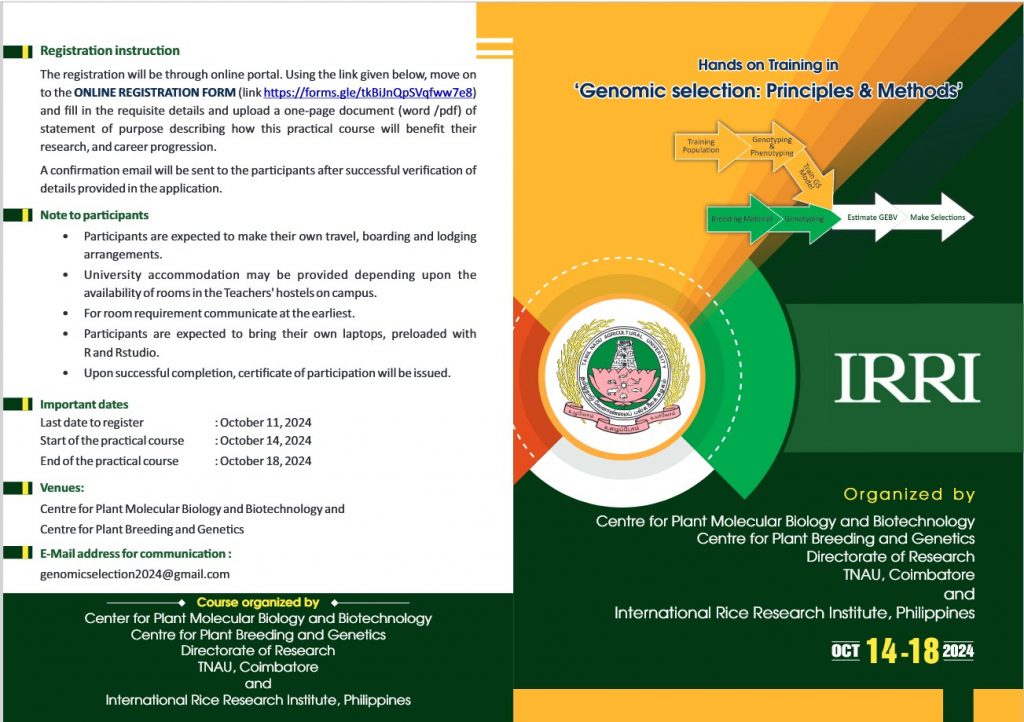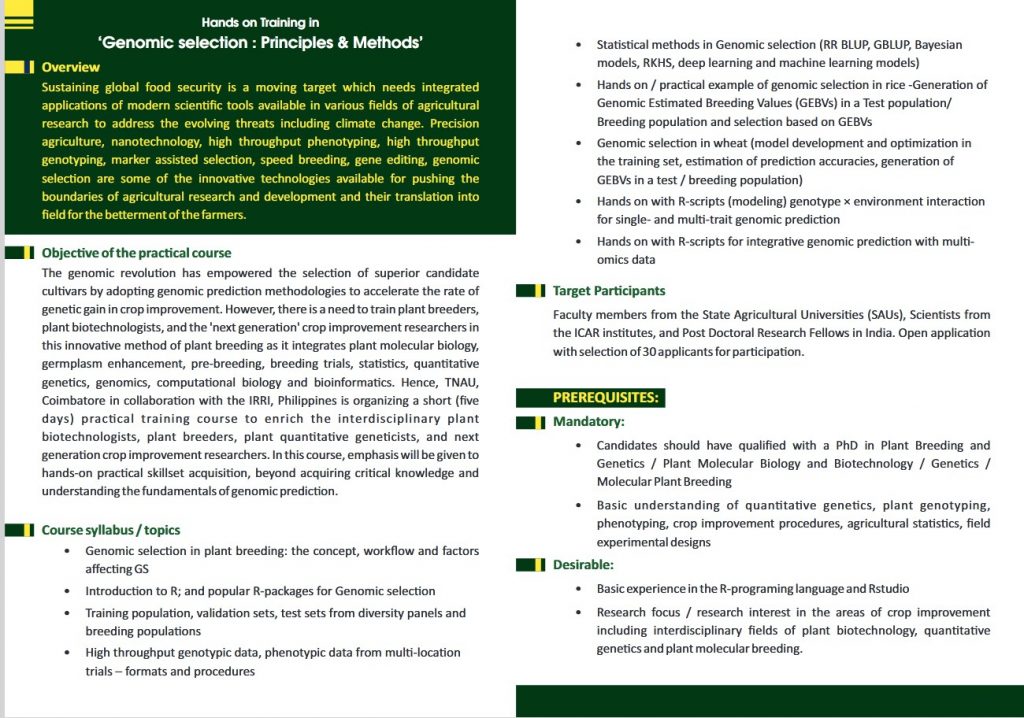Objective of the course
The genomic revolution has empowered the selection of superior candidate cultivars by adopting genomic prediction methodologies to accelerate the rate of genetic gain in crop improvement. However, there is a need to train plant breeders, plant biotechnologists, and the ‘next generation’ crop improvement researchers in this innovative method of plant breeding as it integrates plant molecular biology, germplasm enhancement, pre-breeding, breeding trials, statistics, quantitative genetics genomics, computational biology and bioinformatics. Hence, TNAU, Coimbatore in collaborative on with the IRRI, Philippines is organizing a short (five days) practical training course to enrich the interdisciplinary plant biotechnologists, plant breeders, plant quantitative geneticists, and next generation crop improvement researchers. In this course, emphasis will be given to hands-on practical skill set acquisition, beyond acquiring critical knowledge and understanding the fundamentals of genomic prediction.
Course syllabus / topics
- Genomic selection in plant breeding: the concept, workflow and factors affecting GS
- Introduction to R; and popular R-packages for Genomic selection
- Training population, validation sets, test sets from diversity panels and breeding populations
- High throughput genotypic data, phenotypic data from multi-location trials – formats and procedures
- Statistical methods in Genomic selection (RR BLUP, GBLUP, Bayesian models, RKHS, deep learning and machine learning models)
- Hands on / practical example of genomic selection in rice – Generation of Genomic Estimated Breeding Values (GEBVs) in a Test Population/ Breeding Population and selection based on GEBVs
- Genomics selection in wheat (model development and optimization in the training set, estimation of prediction accuracies, generation of GEBVs, in a test/ breeding population)
- Hands on with R-Scripts (modeling) genotype X environment interaction for single- and multi-trait genomic prediction
- Hands on with R-scripts for integrative genomic prediction with multi- omics data


